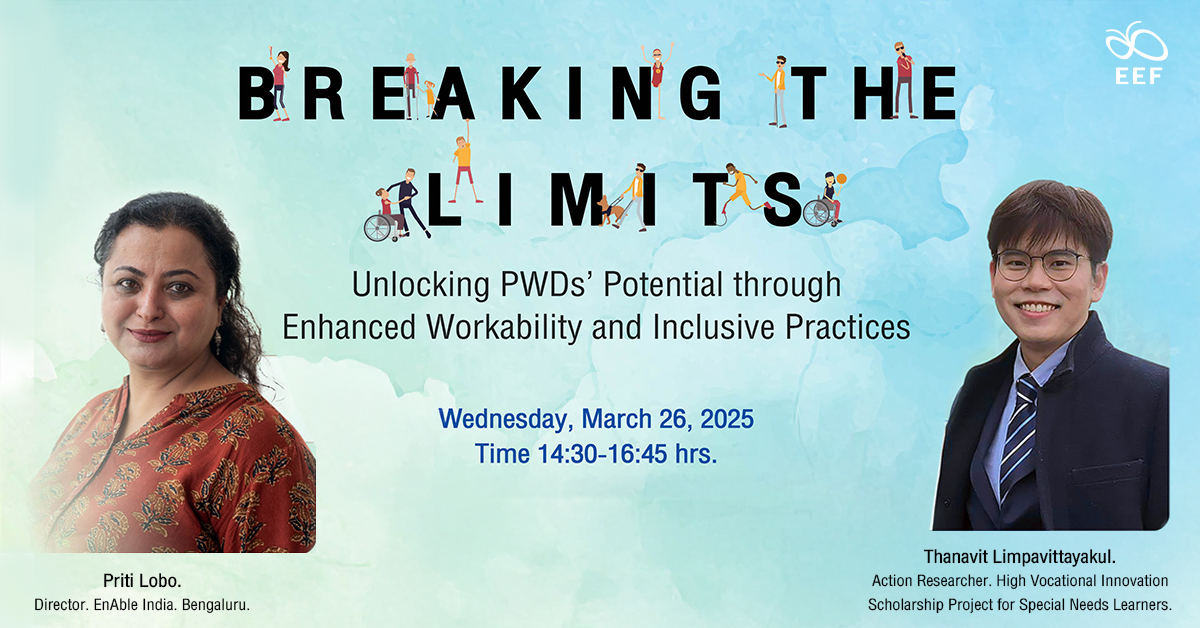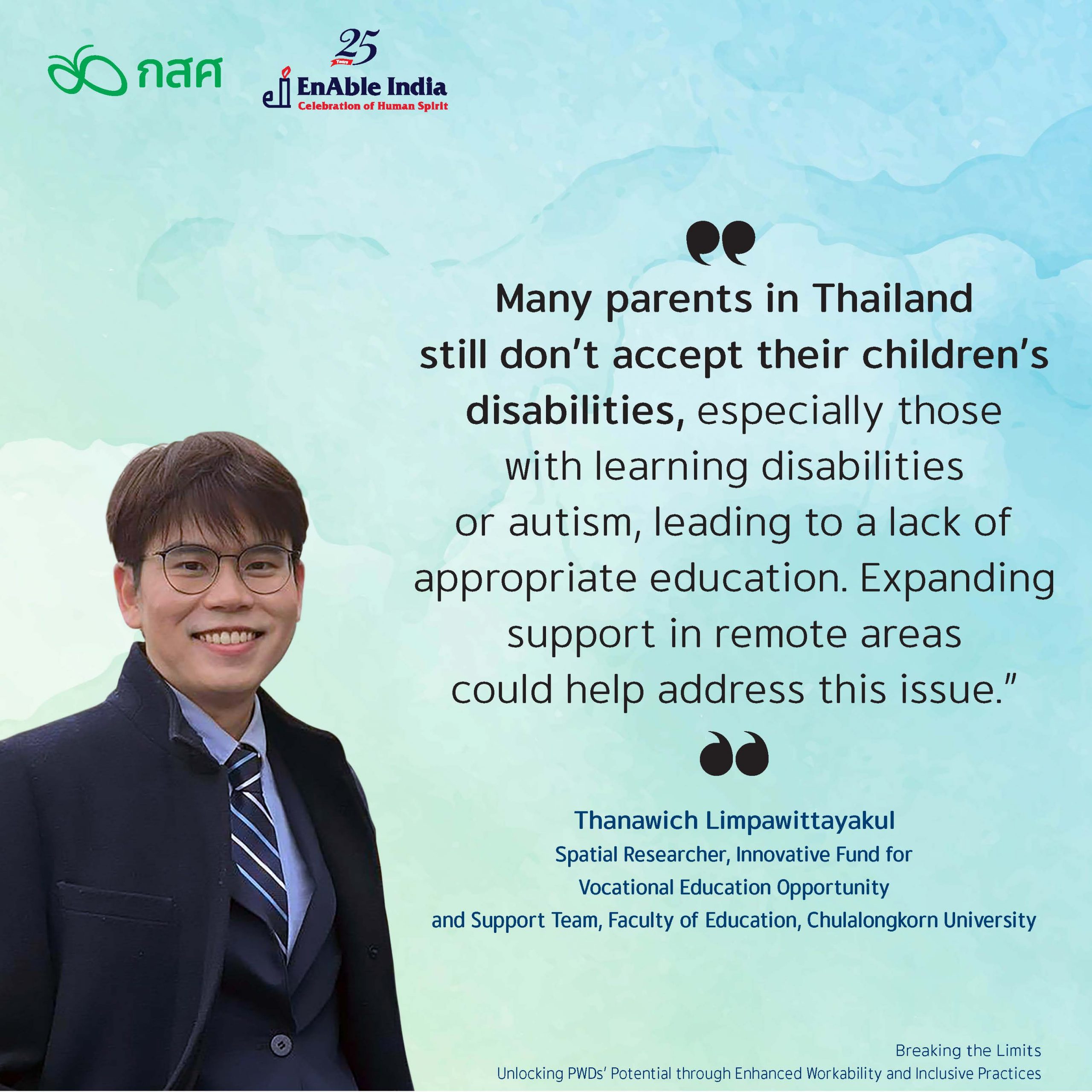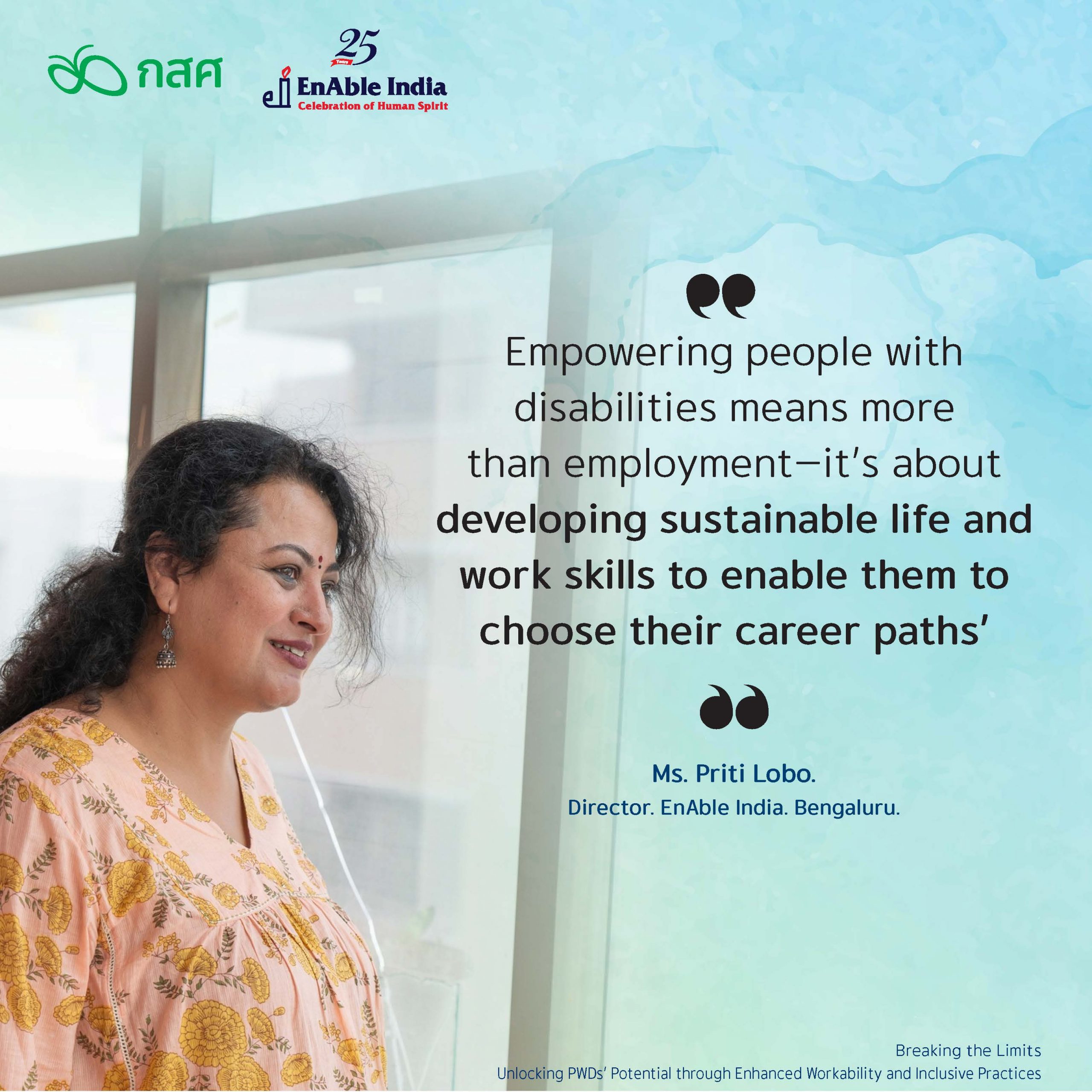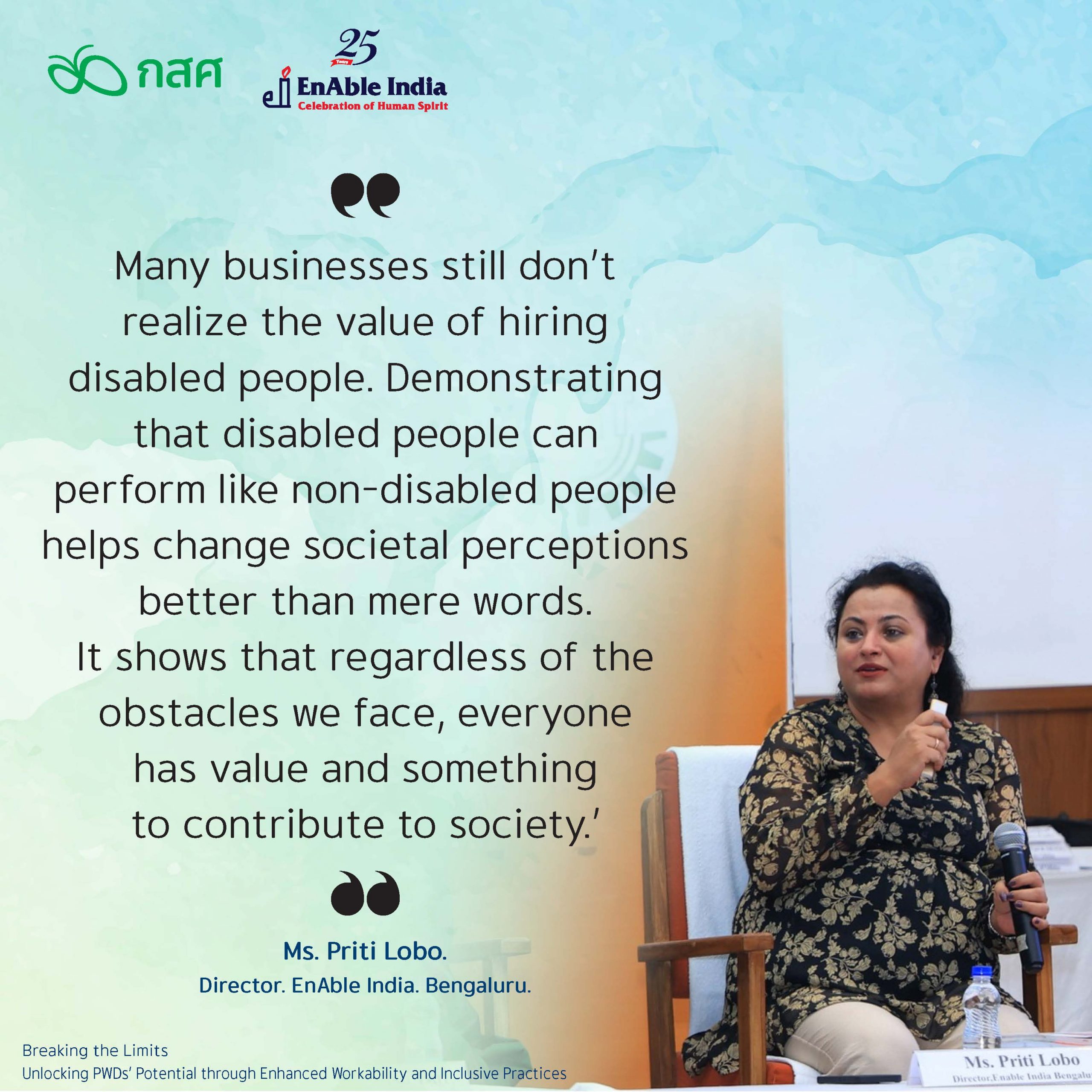
“We all enjoy independence. We enjoy it because it gives us the power to be in charge. We enjoyed it because we have an ownership to do things… but what does independence look like for a person with disabilities?”
Priti Lobo, Director of EnAble India, raised this powerful question to kick off the discussion on inclusive employment hosted by the Equitable Education Fund (EEF) Thailand, titled “EnAbling Agency For Persons with Disability Solutions for an Inclusive Tomorrow.”

The online seminar brought together leaders from India and Thailand to explore how societies can better support young people with disabilities. It featured presentations by Priti Lobo, followed by Thanavit Limpavittayakul, Action Researcher for the High Vocational Innovation Scholarship Project for Special Needs Learners, and ended with a Q&A session.
From Personal Challenge to National Impact
In a world designed for people without disabilities, integrating youth with disabilities has been complicated, because the underlying issues are not being properly addressed. EnAble India is one of the organizations that are actively working to address the structural issue, especially in employment.

Priti shared the story which had led to the founding of EnAble India. It began when Hari, the younger brother of co-founder Shanti Raghavan, lost his eyesight at the age of sixteen. The family turned to spiritual remedies, took him to the United States to explore rehabilitation, and other solutions, but eventually found out that the solution was not about fixing the disability. It was about giving the people with disabilities the ownership and tools to lead an independent life.
Today, the organization has over 25 years of experience, working across 19 disability types and impacting more than 2,220,000 lives across 28 states. Their approach combines employment skill training, education sector and corporate partnerships, and policy advocacy.
Not Just Creating Jobs, But Creating Careers
EnAble India goes beyond just helping people get jobs. The organization aims to build long-term careers for people with disabilities.
“It’s not just about having a job. One needs to have a career. We probably help someone land up with one job, but how are they going to be constantly in that life cycle, of being able to contribute, being able to deliver, being in employment? That’s when you can have a career,” Priti said.
To achieve this goal, the organization utilized an employability framework, which focuses on: 1.) Vision and Attitude: helping individuals set goals and develop self-confidence, 2.) Disability-related Skills: learning mobility, tech, and communication skills, 3.) Resilient Job Skills: relearn and adapt to constantly changing environments, and 4.) Self-determination: developing the agency to take charge of a career.

Priti also noted that companies have to shift their mindset from seeing disabilities as barriers and to focus on performance, from qualification to abilities and aspirations. Everyone has barriers, and disability is just one among many. Doing so would help improve employment inclusivity.
Vocational Scholarships for Disabled Youth
After Priti’s presentation, Thanavit discussed how Thailand is tackling similar challenges while promoting inclusive employment through the High Vocational Innovation Scholarship program. The program began in 2020 under the concept of “turning disability into power.”
The program offers scholarships to students with disabilities. Most scholarship recipients also come from economically disadvantaged backgrounds. It provides a monthly living allowance for two years, funding to vocational colleges to improve support systems, training in financial literacy, design thinking, and digital skills, as well as internship and employer partnerships in high-demand sectors.

Currently, there are over 570 student participants across nine provinces. Students who have graduated have gone on to work in various sectors and working environments from office, logistics, accounting, and even helping family run businesses.
Although the program has achieved a forty percent employment rate, Thanavit noted that it continuously uses feedback and comments from participants to improve its services.
Power of Collaboration
Both EnAble India and Thailand’s efforts demonstrate the importance of partnership in increasing employment for youths with disabilities. Collaboration between education, community, and the private sectors ranges from co-design training to internship programs, allowing people with disabilities to not just get training, but align their skills with real-world market demand, build confidence, and get exposure to increase employability.
EnAble India has worked with NGOs, government agencies, universities, and industries. These collaborations allow the companies to see the potential of hiring youths with disabilities. For instance, through the partnership with private companies, the organization has successfully placed 173 deaf participants in semi-technical roles. The internships mean students gain both training and exposure to companies.
Thailand also highlighted partnership as key in their effort. The project connects vocational colleges, local businesses, and NGOs to design training programs in order to ensure that students’ skills align with companies’ demands. For example, Michelin collaborates with Bangsaen Technical College to train students with disabilities. The Red Cross in Chiang Mai offers internships, and many have gone on to work for the association full-time.
Mainstream Narrative Change
The discussion has mainly focused on improving people with disabilities skills through various innovations, but one of the barriers that Priti has briefly addressed during her presentation is the need to change the mindset of employers – from perceiving disabilities as barriers to seeing solutions.
This issue is further discussed during the Q&A session, addressing how to encourage, not just employers, but the whole society to recognize the value of persons with disabilities and provide better support and welfare.
Addressing this question, Priti categorized the solutions into two parts. First is the social narrative. She states that the narrative related to persons with disabilities have to shifted from charity mindset to economic value that they can bring to the table
“When we know the value it brings to the economy then people would start listening to us,” she said.
The second one is an accessible built environment. She emphasized that persons with disabilities need to be in different social spaces, and to do that, we need to have an accessible built environment for them to do so, to interact with other social groups, to play a part in society.

An inclusive Future
Both EnAble India and the High Vocational Innovation Scholarship program are working in improving employability for youth with disabilities by providing funding, training, and opportunities. However, the discussion throughout the webinar demonstrates that inclusive workforce or society cannot be successful without collaboration as well as the change of mindset.
To create an equitable society, we must continue to work together by shifting the perception of employers from seeing disability as a barrier to seeing the economic and social value youth with disabilities can bring, changing the mainstream narrative of society, and creating an accessible environment that allows youth with disabilities to thrive and take control of their career.
In this environment, young people with disabilities can participate fully in society and reach their full potential. This environment is an answer to the question Priti raised at the beginning of the seminar: “What does independence look like for a person with disabilities?”

